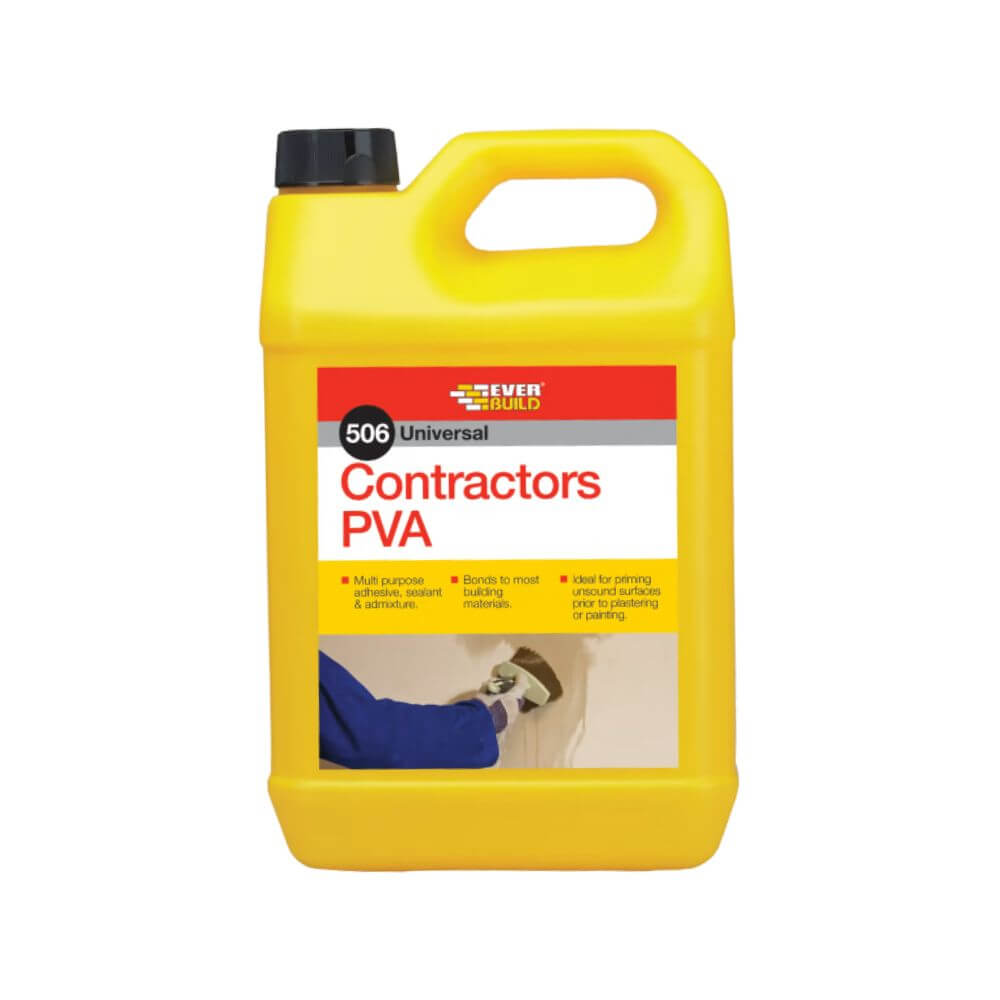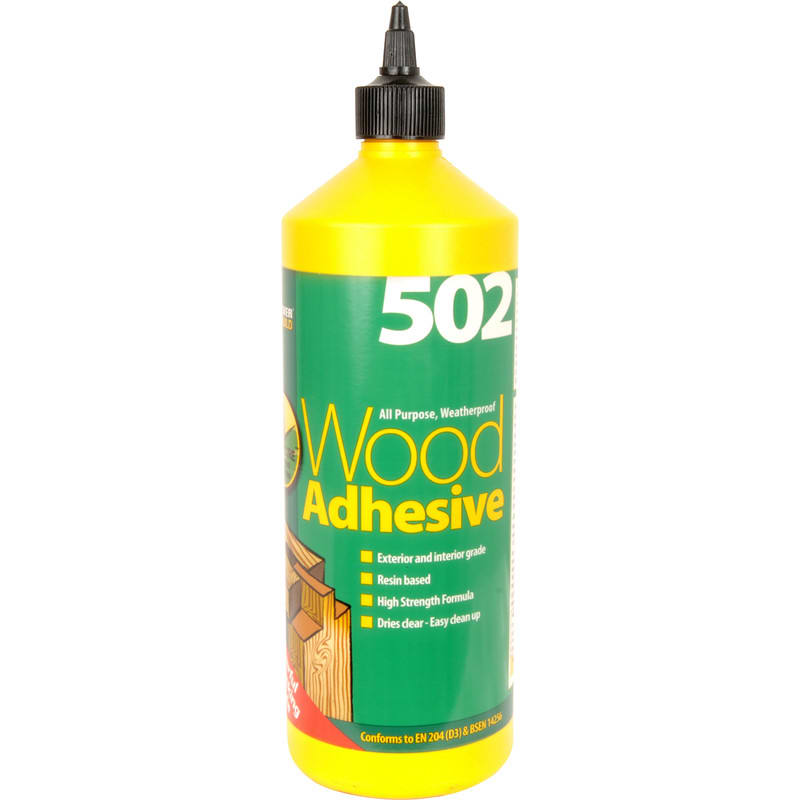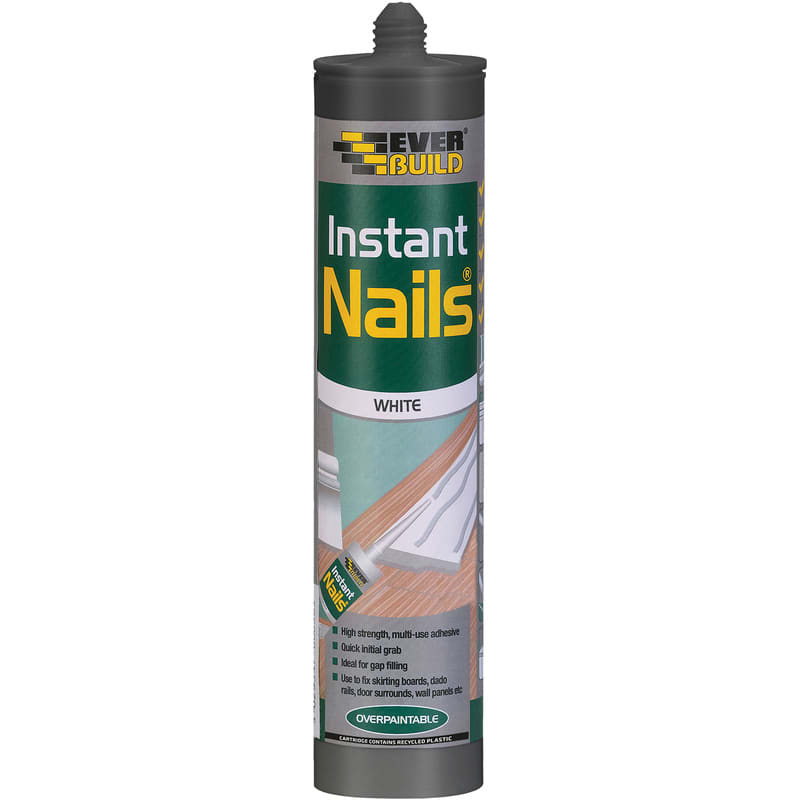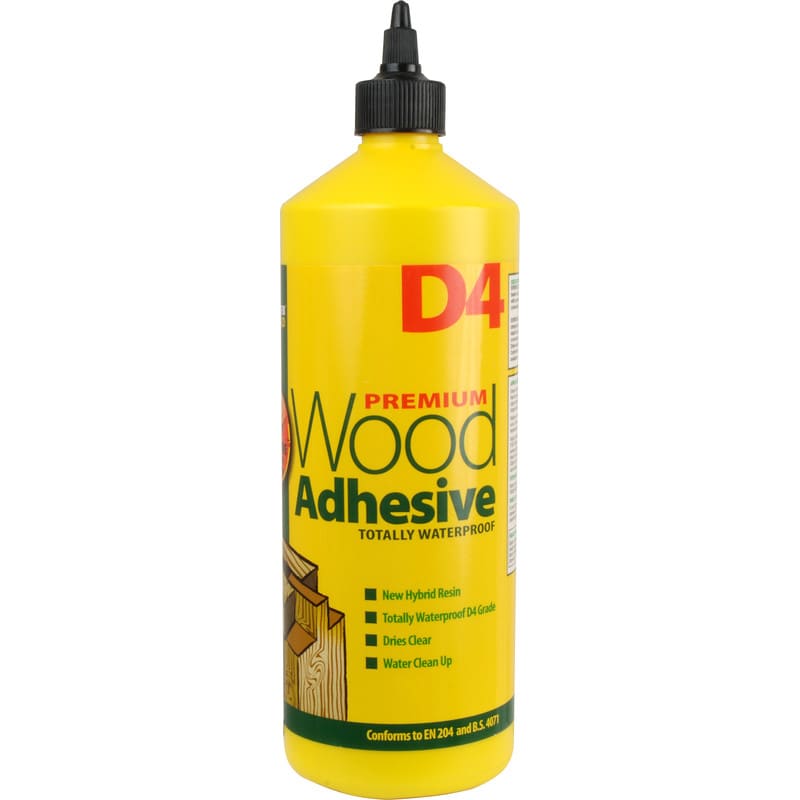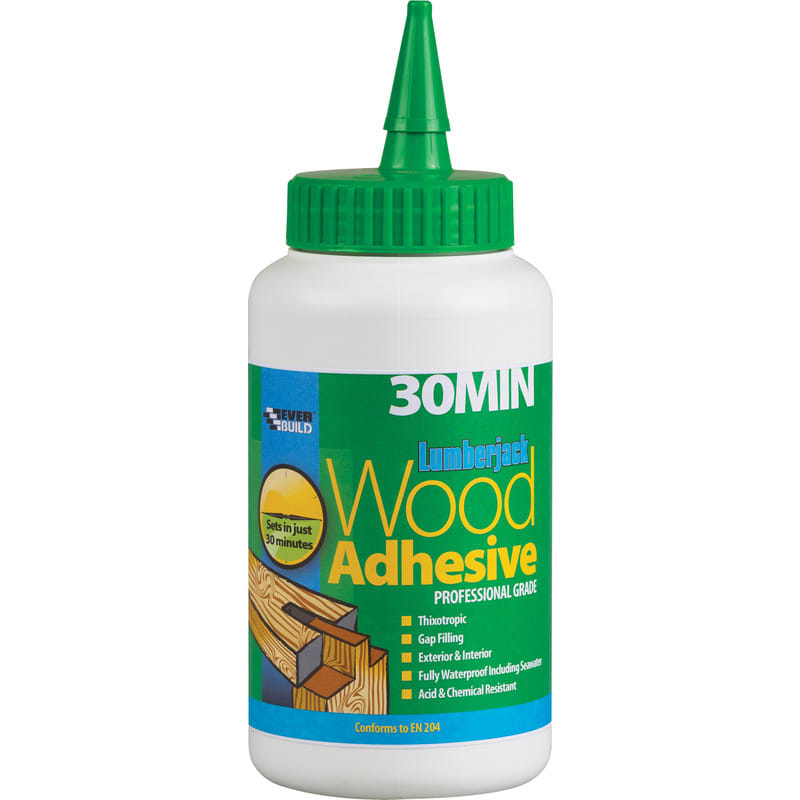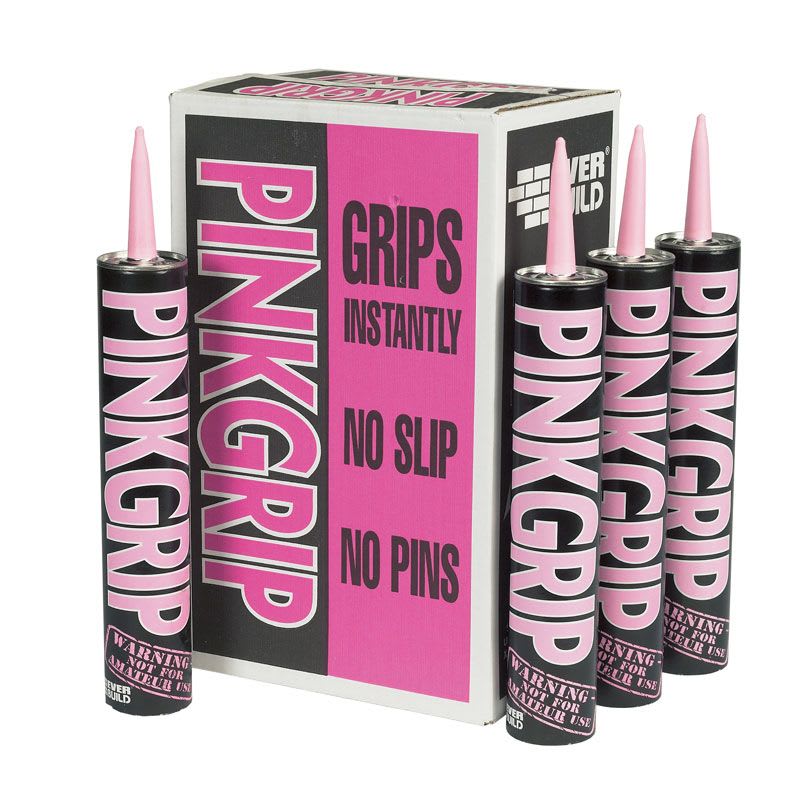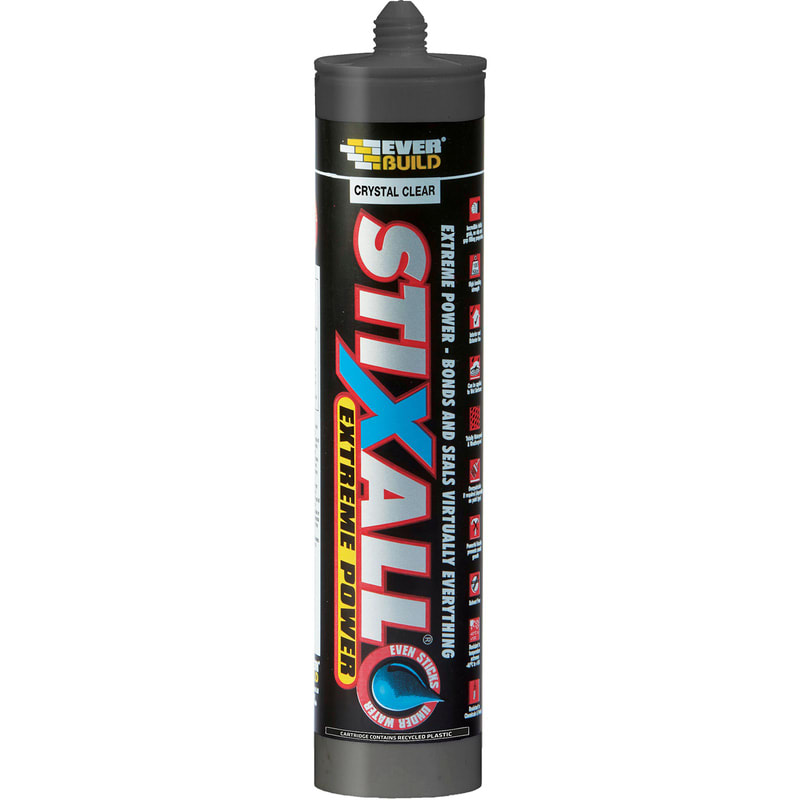Adhesives & Glues
(29 Products)For decades, adhesives and glue have been pivotal in the construction sector. These substances are essential for creating strong bonds between different materials, enabling the creation of robust and durable structures. Our inventory is home to only the best quality specialist glues and adhesives, stocked by renowned companies such as Evo-Stick and Everbuild.
What Are Adhesives and Glues?
Here at Materials Market, we offer a comprehensive range of adhesive solutions from adhesive tape and wood adhesives to super glue and PVA glue.
If you're looking to bond specific materials or tackle adverse weather conditions, we stock the solution.
With so many solutions on the market from synthetic adhesives and natural adhesives to spray adhesives - it can be difficult to decipher which method is best. To help you round down exactly what adhesive/glue your project requires, let's take a look at the most common adhesive solutions on the market:
- Epoxy Adhesives: Among the most widely used adhesives in construction. They consist of two components - resin and hardener - which are mixed before application. Epoxy adhesives can bond a variety of materials, including metals, plastics, and composites, and are known for their high strength, durability, and resistance to chemicals and environmental factors.
- Polyurethane Adhesives: Are also popular in the construction industry. They are ideal for bonding wood, metal, and plastic substrates and offer excellent water resistance, making them suitable for outdoor applications. Polyurethane adhesives also offer good flexibility and can absorb vibrations, making them ideal for use in structures that experience frequent movement. Polyurethane glue is used with both porous and non-porous materials; a common polyutherane-glue industry favourite is Gorilla Glue.
- Acrylic Adhesives: Known for their fast-curing properties and excellent bonding strength. They are ideal for bonding metals, plastics, and composites, and are resistant to both weathering and ageing. Acrylic adhesives are commonly used in structural applications, including bonding panels and laminates.
- Cyanoacrylate Adhesives: Also known as superglues, are fast-curing adhesives that bond quickly to a variety of materials, including metals, plastics, and wood. They are ideal for small-scale bonding applications and are widely used in the construction of electronics, where their fast-setting properties are particularly useful.
- Hot Melt Adhesives: The perfect solution for your adhesion needs; they offer a convenient way to join divergent substances, ranging from glass and wood to ceramics and rubber, using a hot glue gun and hot melt glue sticks. Whether you're aiming to bind cardboard, metal, leather or fabric with plastic, foam or other materials - these general-purpose glues will provide fast and reliable results that last.
- Contact Adhesives: Applied to both surfaces to be bonded and allowed to dry before being brought together. It is ideal for bonding large surface areas and can be used to bond a variety of materials, including wood, metal, and plastic. Contact adhesives offer excellent heat and moisture resistance and are commonly used in the construction of countertops and furniture.
Should your project require silicone and sealant solutions, simply navigate our silicone and sealant homepage. For duct tape, masking tape and other tapes, take a look at our tapes homepage.
Applications of Adhesives and Glues in Construction
Adhesives and glues are used in various applications in the construction industry, including:
- Structural Bonding: Adhesives and glues are widely used in structural bonding applications, including bonding panels and laminates, reinforcing concrete structures, and bonding steel components.
- Flooring: Adhesives and glues are commonly used in flooring applications, including the installation of carpet tiles, vinyl tiles, and wood flooring.
- Sealants: Adhesives and glues are often used as sealants, filling gaps and sealing joints in structures to prevent water, air, and dust from penetrating.
Benefits of Adhesive Bonding
Adhesives and glues offer several benefits in construction, including:
- Strong and Durable Bonds: Adhesives and glues create strong and durable bonds between materials, resulting in robust and long-lasting structures.
- Improved Aesthetics: Adhesives and glues offer a clean and seamless finish, improving the overall aesthetics of the construction project.
- Reduced Time and Labor Costs: Adhesives and glues can significantly reduce the time and labour required for construction projects, resulting in cost savings for contractors and builders.
- Increased Design Flexibility: Adhesives and glues offer increased design flexibility, enabling the creation of complex and technical structures.
Frequently Asked Glues & Adhesives Questions
What Are Solvent-Based Adhesives?
A solvent-based adhesive is a type of adhesive that uses a solvent as a carrier for the adhesive's active ingredients.
One of the main advantages of solvent-based adhesives is their ability to bond with a wide range of materials, including plastics, metals, and wood. They also offer excellent initial bond strength and are resistant to water and heat.
Solvent-based adhesives are far more temperature stable than solvent-free alternatives, making them suitable for even the coldest environments. On top of that, they tend to better withstand weathering conditions as well - a great benefit if you need your glue to stay strong no matter what Mother Nature throws at it!
What Are Adhesion Promoters?
Adhesion promoters (APs) are bi-functional substances that enhance the bonding strength between a coating and its substrate.
These materials, also known as "coupling agents," can be applied in thin film thicknesses rather than as an actual coat as priming systems do. The efficacy of APs depends on the adhesive being used and the type of surface it is adhering to.
How Do Water-Based Adhesives Differ From Solvent-Based Adhesives?
Two types of adhesive formulations dominate chemical bonding adhesive technology: solvent-based and water-based adhesives. The former is a series of viscous, potentially toxic compounds; the latter offers an effective yet safe alternative for surface joining operations.
Solvent-based adhesives have some drawbacks in comparison to water-based adhesives. The solvents used in these adhesives can be hazardous to human health and the environment, and the fumes they produce can be flammable and explosive.
The use of solvent-based adhesives may also require additional safety precautions, such as the use of protective equipment and adequate ventilation.
The water-based adhesive solution is not flawless either. Weathering can cause deterioration of the formula when temperatures swing too high or low; however, it is easy to clean up and wipe away - something that cannot be said for a solvent carrier.
What Types of Failure Can Occur Within An Adhesive Joint?
An adhesive failure occurs when the cementing force between the surface and bonding agent fails. By contrast, a cohesive failure refers to an internal breakdown within the bulk layer of adhesion itself.






